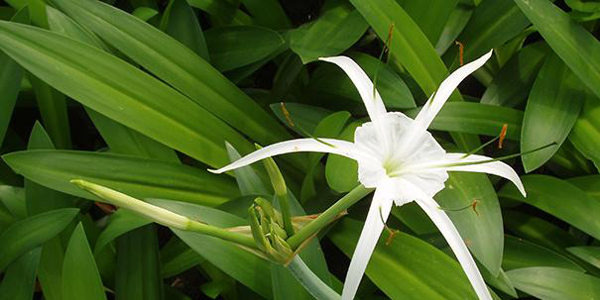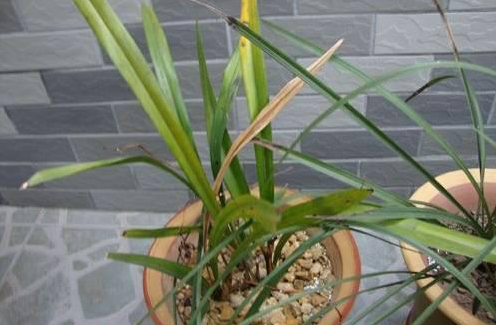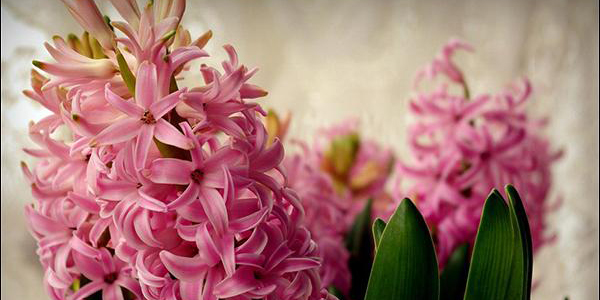What are the methods of raising water ghost plantains?
Water ghost banana plant fresh green robust, slender and beautiful impression, is a good flower and leaf viewing plants. So, how does the water ghost banana grow? Today, Xiao Bian will introduce the breeding method of water ghost banana for everyone.

How to raise water ghost banana:
To know how to raise water ghost banana, we must first understand the growth habits of water ghost banana. Water ghost banana likes plenty of light, warm and humid climate, not cold. Water ghost banana on the soil requirements are not strict, like fertile soil, can be used in potted rotting soil, can also be planted in clayey soil.
Potted water ghost banana overwintering temperature above 15℃, growth period water and fertilizer should be sufficient, open field planting water ghost banana in autumn need to dig balls, dry stored indoors. With a little maintenance, the water ghost banana will grow and bloom year after year.
Water ghost banana breeding methods:
1. Soil: Water ghost banana is not strict with soil requirements. It can be potted with rotten leaf soil or planted in clayey soil. Potted water ghost banana can be carried out in early spring, commonly used peat soil, fertile garden soil and river sand equal mixed soil. The planting depth of Mizuoka is that the top of pseudobulb is flush with the pot soil. Water ghost banana planted in the choice of deep soil, fertile, good drainage clay soil, planting in early May is appropriate.
2. Watering: Water ghost banana likes wet soil environment and is not resistant to drought. During the growth period, especially when it is high temperature in summer, it should fully supply water, keep the pot soil moist, and not let the pot soil be too dry. Water ghost banana also avoid wet waterlogging, plum rainy season after the rain should be poured in time to the basin of water. In winter, it is necessary to control watering and keep the pot soil dry. Low temperature and high humidity, easy to lead to pseudobulb rot.
3. Light: Water ghost banana likes semi-shade environment and has strong negative resistance. When summer light is too strong, appropriate shade or move flowerpot half shade place. Long-term shade, water ghost banana leaves will become thin, dark leaves, resulting in plant shape is not beautiful. Water ghost banana avoid strong light exposure, otherwise the leaves become yellow coke sharp. 5-9 The moon should be shaded, or placed in a place where scattered light is sufficient. The rest of the day should be sunny.
4. Temperature: Water ghost banana likes warmth and cannot tolerate cold. The most suitable temperature for growth is 21-27℃. When it is below 15℃, the growth of water ghost banana stops. When it is below 10℃, the leaves turn yellow and wilted. When it is 5℃, the aboveground part dies. The overwintering temperature of potted water ghost banana is above 15℃. If the aboveground part dies, it can enter the dormant period in the form of underground bulbs, and new leaves can still sprout and grow when the temperature rises in the following spring.# p#subtitle #e#
5. Fertilization: Fertilize once every half month during the growth period of water ghost banana. After entering the bud stage, phosphorus and potassium fertilizer should be added to make the flowers large. Fertilization should be suspended when the water ghost banana blooms. After flowering, nitrogen and potassium-based fertilizer should be applied to facilitate stem and leaf growth and pseudobulb hypertrophy. If the growth environment is overcast, the supply of nitrogen fertilizer should be reduced, and phosphorus and potassium fertilizer should be applied to increase the growth of plants without excessive growth. Stop fertilizing in winter.
6, pests and diseases: high temperature, high humidity or low temperature season, water ghost banana is prone to brown spot disease, should pay attention to prevention and control. Brown spot disease damage, leaves appear round small brown spots, then gradually expand, spots edge black brown, gray black in the center, until the spots connected, until the leaves die. When a small amount is found, the old diseased leaves are picked and destroyed. When it occurs seriously, spray 75% mancozeb WP 500 times to control it.
7, pruning: water ghost banana flowers after the timely cut flower scape, so as not to bear fruit and consume nutrients, affecting the growth of plants. If the indoor space is small, the leaves on the ground can be cut off before winter comes, and the potted plants are placed in a dry shade place, and kept at room temperature of 5-10℃ until the next spring.
8, pot turning: potted water ghost banana every 2-3 years in spring April pot turning 1 time. Likes fertile, moist, organic-rich and well-drained clay soils. Matrix can be used decayed leaf soil, garden soil, peat soil, plain sand and other materials prepared. Planting should not be deep, with the top of the false bulb flush with the pot soil for degrees. But the seed balls can be planted a little deeper.
Water ghost banana flower type strange, petals a silk ribbon, white petals, green leaves, very elegant and beautiful, potted indoors, can beautify the room.
How to raise water ghost banana
Water ghost banana leaves posture fitness, flowering 6-7 months, white, flower shape unique, graceful, suitable for potted viewing. Warm areas, can be used for garden layout or flower border, flower bed. So, how does the water ghost banana grow? The following small series will share with you the cultivation method of water ghost banana.
How to raise water ghost banana
To know how to raise water ghost banana, we must first understand the growth habits of water ghost banana. Water ghost banana likes plenty of light, warm and humid climate, not cold. Water ghost banana on the soil requirements are not strict, like fertile soil, can be used in potted rotting soil, can also be planted in clayey soil.
Potted water ghost banana overwintering temperature above 15℃, growth period water and fertilizer should be sufficient, open field planting water ghost banana in autumn need to dig balls, dry stored indoors. With a little maintenance, the water ghost banana will grow and bloom year after year. Water ghost banana flower type strange, petals a silk ribbon, white petals, green leaves, very elegant and beautiful, potted indoors, can beautify the living environment.
Culture method of water ghost banana
Soil: Water ghost banana on the soil requirements are not strict, can be potted with rotten leaf soil, can also be planted in clayey soil. Potted water ghost banana can be carried out in early spring, commonly used peat soil, fertile garden soil and river sand equal mixed soil. The planting depth of Mizuoka is that the top of pseudobulb is flush with the pot soil. Water ghost banana planted in the choice of deep soil, fertile, good drainage clay soil, planting in early May is appropriate.
Watering: Water ghost banana likes wet soil environment, not resistant to drought, during the growth period, especially in summer high temperature, should fully supply water, keep the pot soil moist, do not let the pot soil too dry. Water ghost banana also avoid wet waterlogging, plum rainy season after the rain should be poured in time to the basin of water. In winter, it is necessary to control watering and keep the pot soil dry. Low temperature and high humidity, easy to lead to pseudobulb rot.
Light: Water ghost banana likes semi-shade environment, strong shade tolerance. When summer light is too strong, appropriate shade or move flowerpot half shade place. Long-term shade, water ghost banana leaves will become thin, dark leaves, resulting in plant shape is not beautiful. Water ghost banana avoid strong light exposure, otherwise the leaves become yellow coke sharp. 5-9 The moon should be shaded, or placed in a place with sufficient scattered light. The rest of the day should be sunny.
Temperature: Mizuoka likes warm, can not tolerate cold, the most suitable temperature for growth is 21-27℃, below 15℃, Mizuoka growth stops, leaves turn yellow and wilt below 10℃, the ground dies at 5℃, potted Mizuoka overwintering temperature is above 15℃. If the aboveground part dies, it can enter the dormant period in the form of underground bulbs, and new leaves can still sprout and grow after the temperature rises in the following spring.
Fertilization: the growth period of water ghost banana fertilization once every half month. After entering the bud stage, phosphorus and potassium fertilizer should be added to make the flowers large. Fertilization should be suspended when the water ghost banana blooms. After flowering, nitrogen and potassium-based fertilizer should be applied to facilitate stem and leaf growth and pseudobulb hypertrophy. If the growth environment is overcast, the supply of nitrogen fertilizer should be reduced, and phosphorus and potassium fertilizer should be applied to increase the growth of plants without excessive growth. Stop fertilizing in winter.
Diseases and pests: high temperature, high humidity or low temperature season, water ghost banana prone to brown spot disease, should pay attention to prevention and control. Brown spot disease damage, leaves appear round small brown spots, then gradually expand, spots edge black brown, gray black in the center, until the spots connected, until the leaves die. When a small amount is found, the old diseased leaves are picked and destroyed. When it occurs seriously, spray 75% mancozeb WP 500 times to control it.
Pruning: after the flowers of water ghost banana fade, cut off the flower scape in time to avoid fruiting and consuming nutrients, affecting the growth of plants. If the indoor space is small, the leaves on the ground can be cut off before winter comes, and the potted plants are placed in a dry shade place, and kept at room temperature of 5-10℃ until the next spring.
Turn over pot: potted water ghost banana every 2-3 years in spring April turn over pot 1 time. Likes fertile, moist, organic-rich and well-drained clay soils. Matrix can be used decayed leaf soil, garden soil, peat soil, plain sand and other materials prepared. Planting should not be deep, with the top of the false bulb flush with the pot soil for degrees. But the seed balls can be planted a little deeper.
Friends who don't know how to raise water ghost banana, as long as they follow the breeding method of water ghost banana shared above, they can certainly cultivate healthy and beautiful water ghost banana.
How to raise water ghost banana, water ghost banana breeding methods and attention items
Water ghost banana is also called spider orchid. Water ghost banana not only has ornamental value, but also has high medicinal value. It can also be cultivated in large areas as a cash crop. Now we will learn how to raise water ghost banana together. Water ghost banana cultivation methods and attention items.
1, planting: potted can be carried out in early spring, commonly used peat soil, fertile garden soil and river sand equal mixed soil. The planting depth is the degree that the top of pseudobulb is flush with the pot soil. The choice of deep soil layer, fertile, good drainage clay soil, planting in early May is appropriate.
2. Fertilization: Fertilize once every half month during the growth period. After entering the flowering period, manure should be applied once every 7-10 days. If phosphorus and potassium fertilizers can be properly supplemented, flowers can be more vigorous.
3. Watering: After the water ghost banana leaves the house in spring, gradually increase the amount of watering as the temperature rises. In midsummer, it is best to spray water once in the morning and then irrigate in the afternoon to keep the soil often moist and have a high ambient humidity. After moving indoors in winter, control watering, as long as the pot soil is slightly moist, it can survive the cold winter.
4, temperature, light: summer light is too strong, it is appropriate to shade or move the flowerpot to the semi-shade, winter December to March of the following year, the ground part withered, false bulbs indoor storage with dry sawdust or river sand, the room temperature is required to be 15-20℃, humidity is about 50%, avoid excessive humidity caused by false bulbs rot.
5. Propagation: Water ghost banana adopts the method of sub-ball propagation. In the spring combined with pot change. In winter, put greenhouse in sunny place for cultivation, properly control watering; in summer, put under shade for cultivation, enter flowering period, should fully supply water. If cultivated in the open field, the bulbs are placed in a warm place with sufficient light in the greenhouse in April to promote root activity. Planting site should be sufficient light, rich in humus sandy or clay loam. Deep ploughing in the autumn of the previous year, applying base fertilizer; ploughing again in the spring of the following year, applying base fertilizer again, preparing the soil and making beds. Planting in late May, covering depth 3-5cm, bulb spacing 15- 20cm. Frost in late autumn, yellow leaves, to harvest bulbs in time, after drying placed at about 8℃ storage.
6. Disease and pest control: The main diseases of water ghost banana are leaf spot disease and leaf scorch disease. When a small amount is found, the old diseased leaves are picked and destroyed. When it occurs seriously, spray 75% mancozeb WP 500 times to control it.
How to raise water ghost banana, water ghost banana breeding methods and attention items you have learned? For more information on water ghost banana, please pay attention to hot agricultural materials information.
- Prev

Why is the orchid leaves yellow and withered and rotten? what about the disease spots on the leaves?
To talk about this orchid, this is a kind of plant that many people like very much. Upon hearing the name, it is very elegant, but it is not easy to raise this orchid well. Let's take a look at why the orchid leaves are yellow and withered and rotten roots. What if the orchid leaves are spotted: why are the leaves yellow?
- Next

How to propagate hyacinth and how to deal with it after flowering
Most of the time, the hyacinth planted by people is dried up and discarded after blooming once, without thinking about blooming again the next year. So let's take a look at how hyacinths reproduce.
Related
- Fuxing push coffee new agricultural production and marketing class: lack of small-scale processing plants
- Jujube rice field leisure farm deep ploughing Yilan for five years to create a space for organic food and play
- Nongyu Farm-A trial of organic papaya for brave women with advanced technology
- Four points for attention in the prevention and control of diseases and insect pests of edible fungi
- How to add nutrient solution to Edible Fungi
- Is there any good way to control edible fungus mites?
- Open Inoculation Technology of Edible Fungi
- Is there any clever way to use fertilizer for edible fungus in winter?
- What agents are used to kill the pathogens of edible fungi in the mushroom shed?
- Rapid drying of Edible Fungi

